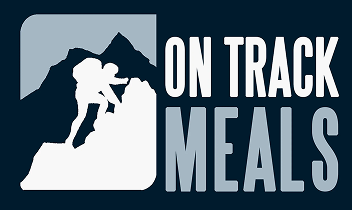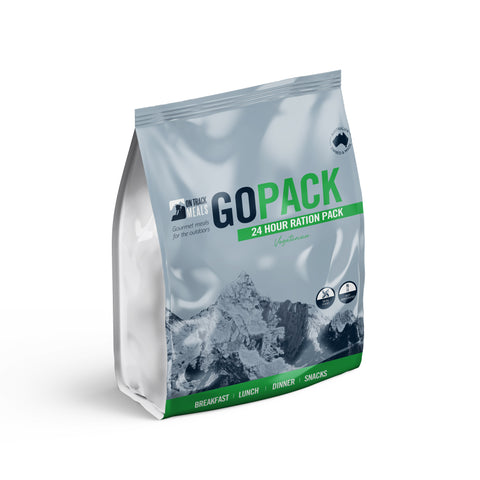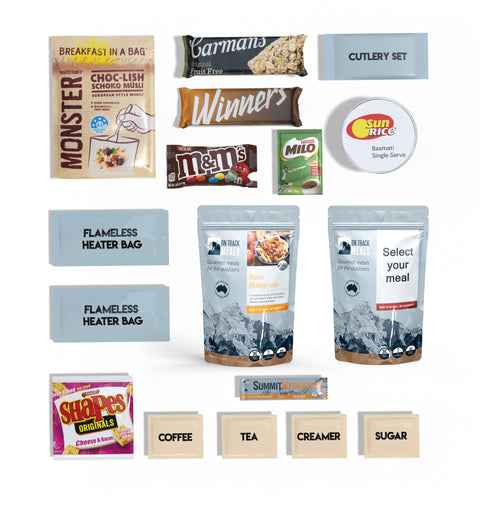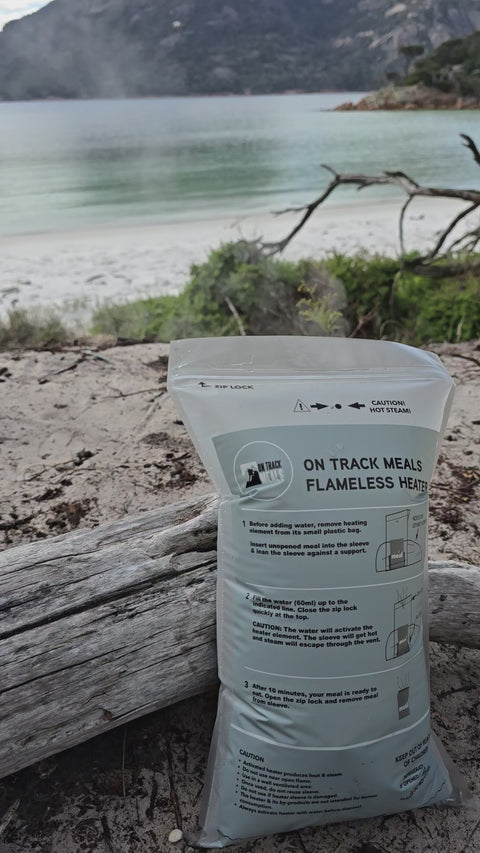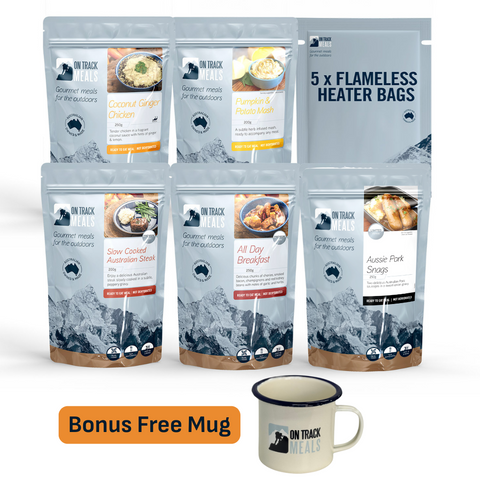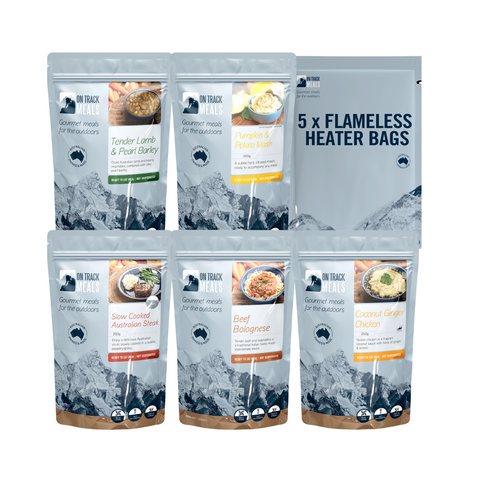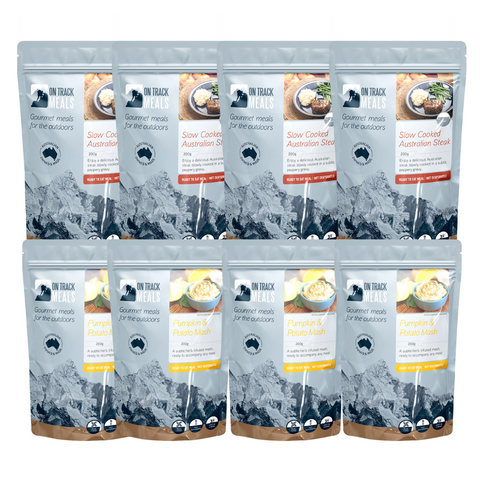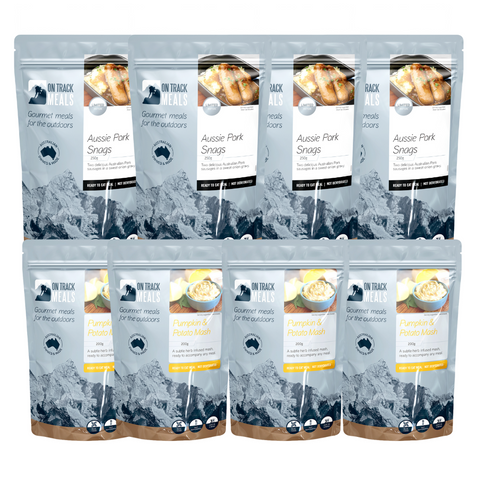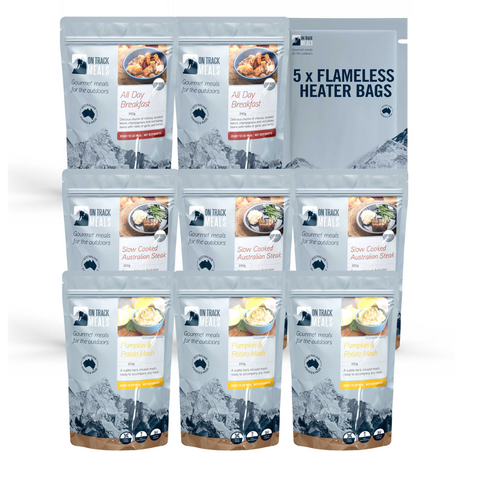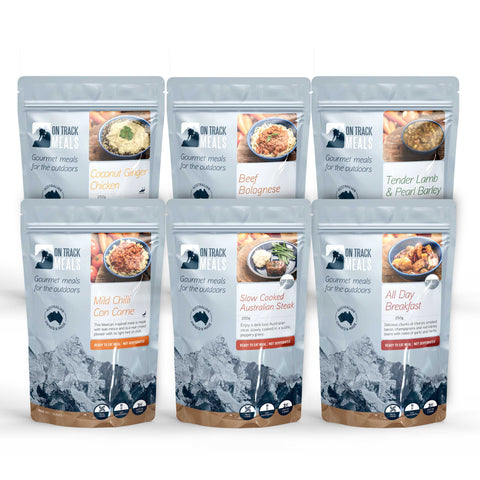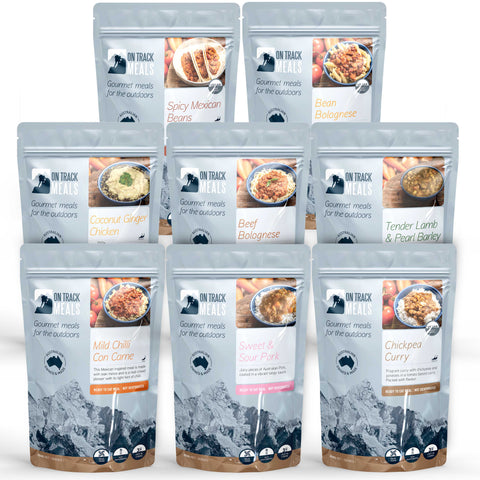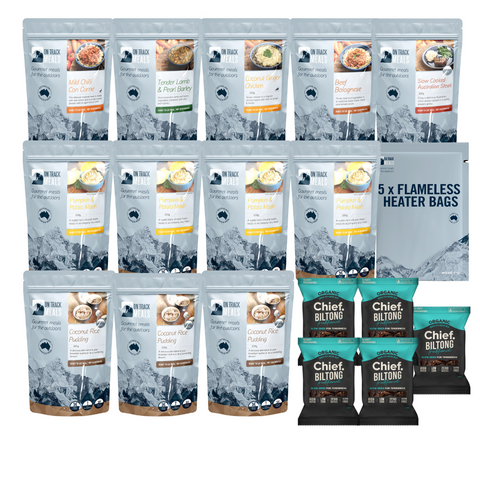Q. What should I eat during the Kokoda Track trek?
A. When trekking the Kokoda Track, your body needs nutrient-dense meals to keep up with the demanding physical activity. Protein and carbohydrates are key for energy and recovery. We recommend ready-made, shelf-stable meals like those from On Track Meals, which are designed for tough environments. You’ll also want options like rice, pasta, and nutrient-packed snacks, including energy bars, biltong, and hydration supplements. These meals not only fuel your body but also help lift morale after long, tiring days of hiking.
Q. Are there food and water available along the Kokoda Track?
A. No, there are no shops or restaurants on the Kokoda Track. Most trekking companies supply meals, but the quality and nutritional value can vary. Some operators provide only basic dehydrated meals, which may lack the taste and nutrients needed for an 8-day trek. For your safety, it's important to be cautious with water — untreated water poses health risks, so make sure to rely on treated or purified water for rehydrating food.
Q. How does the right food impact my trekking experience?
A. Food is more than just fuel on the Kokoda Track — it plays a critical role in helping you recover and stay energized. Proper meals keep your body strong, prevent fatigue, and help maintain morale, especially after long days in the jungle. Real, hearty meals, like Slow Cooked Australian Steak with mash and greens, make a huge difference, turning a difficult journey into an enjoyable experience. The right food helps you push through physically and mentally, allowing you to fully immerse yourself in the beauty and history of the trek.
